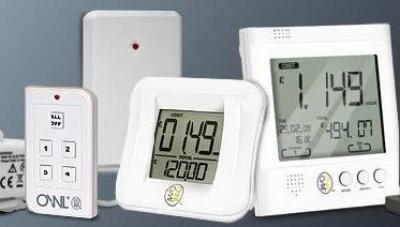Ovum Slams Government’s ‘Hasty’ Smart Meter Rollout

Ofgem’s prospectus on smart metering is not all it’s cracked up to be, according to analyst firm Ovum
Ovum has criticised the government’s smart meter strategy, calling the plans for an accelerated rollout “hasty” and the role of the DataCommsCo, or DCC, “uninspiring”.
Ovum’s comments appeared in a report circulated over the weekend in response to Ofgem’s smart metering prospectus of 27 July, which detailed plans for rolling out smart meters to every home and small business in the country.
The prospectus was included in the government’s Annual Energy Statement, and emphasises the need for a significant acceleration in the rollout of smart meters compared to previously published targets.
‘Hasty’
However, Ovum said the accelerated approach “appears hasty” and seems to have been designed mainly for political ends. “While staged implementation may please the government, it exposes many stakeholders to a number of risks,” Ovum stated in the report.
Among these risks is the danger that interoperability standards may not be sufficiently supported by the rollout plans, which could lead to a standards battle further down the line, Ovum said.
“Ovum believes that Ofgem has underestimated the downside risks of a staged deployment, and must strive to release standards for interoperability at the earliest opportunity to assist suppliers already deploying smart meters,” said lead analyst Stuart Ravens, author of the report, in a statement provided to eWEEK Europe UK.
Ovum believes the DCC doesn’t have a wide enough remit, and urged Ofgem to reconsider the DCC’s scope.
“Ovum analysts were expecting a wider-reaching remit, and have a particular concern that validation, estimation and editing (VEE) is intended to be distributed among market participants,” Ravens stated. “Should (Ofgem) decide to keep the DCC’s remit ‘thin’, then Ovum recommends that Ofgem sets in place a clear VEE strategy to ensure that consumers are protected from the estimation process.”
WAN strategy
The DCC, a new body, will be designed to “identify and procure the most cost-effective solutions for smart metering data management and communications”, according to the government. The DCC will also manage the rollout and provide communication of data to and from smart meters in the domestic sector.
Ovum also criticised Ofgem’s WAN strategy as described in the prospectus, saying it appears to reject the use of power line carrier and cellular technologies for smart meter communications.
The firm praised Ofgem’s approach to consumer engagement, however, and urged the regulator to use as many channels of communication as possible to ensure customers are engaged in the smart metering rollout, including social networks.
“Not one kWh of energy will be saved by installing smart meters alone – it is only when consumers start engaging with their smart meters and modifying their consumption patterns that the energy efficiency goals of smart metering will be met,” Ravens stated.
Consultation planned
Smart meters give consumers up-to-the-minute information about the amount of energy they are using, helping them to understand and manage their consumption, while saving money and reducing carbon emissions. Smart metering also facilitates the development of smart grids, which integrate the actions of all users connected to them in order to efficiently deliver sustainable, economic and secure electricity supplies.

Ofgem and the Department of Energy and Climate Change (DECC) intend to introduce a package of measures in spring 2011, following a public consultation, and have set out a proposed timetable with the aim of beginning the mandated rollout of smart meters in autumn 2013.
DECC claims that, as well as the environmental advantages of smart metering, there is a strong business case for taking the programme forward. The department predicts “benefits across the domestic and smaller non-domestic sectors of £17.8 billion over the next twenty years and a net benefit of £7.2 billion.”
These benefits will derive largely from reductions in energy consumption and cost savings in industry processes, according to DECC. The government is giving consumers until 28 October to respond to proposals.
Security risks
In a report published earlier this month, called “Smart Meter Security”, clean technology analyst group Pike Research said governments and industry have rushed to develop smart meter technology but have not considered all the security issues around the technology.
“It would be naïve to think that smart meters will not be successfully attacked. They will be,” the report stated. “In fact, smart meters represent a worst-case scenario in terms of security: the devices lack sufficient power to execute strong security software; they are placed in physically non- secure locations; and they are installed in volumes large enough that one or two may not be missed.”